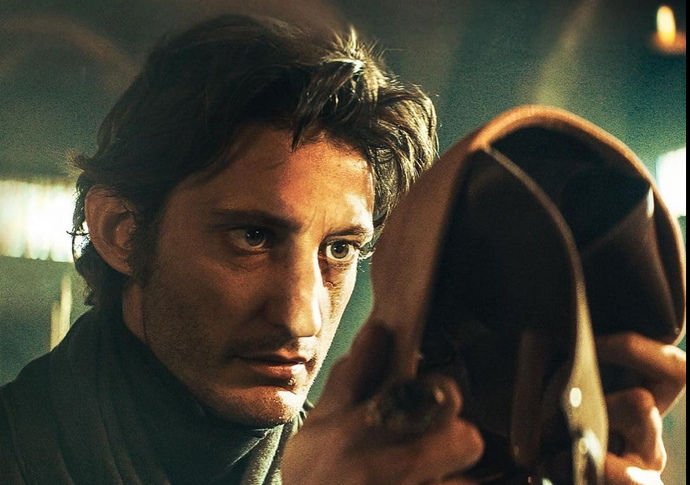The Count of Monte-Cristo: wonderful re-telling of epic adventure
Directors have created something beautiful, lavish and intriguing
Thursday, 1st August 2024 — By Dan Carrier

Pierre Niney in The Count of Monte-Cristo
THE COUNT OF MONTE-CRISTO
Directed by Alexandre de La Patellière and Matthieu Delaporte
Certificate: 12a
☆☆☆☆
ALEXANDRE Dumas wrote an epic in the true sense of the word: The Count of Monte Cristo is not a wham-bam tale, but a slow-burner. And it means the issue with film adaptations was Dumas wrote this blockbuster as a serial in the newspaper Journal des débats.
The best way, it feels, to enjoy this splendid adventure is to serve it up in chunks: reading the Count gives one a marvellous, daily sense of anticipation.
While this is a wonderful re-telling, it has the same issue every other adaptation (and there have been a good few) suffers from: namely, how do you let the audience enjoy the nuance of Edmond’s character and what he attempts to do, and the slow, slow development of the plot, yet still get the end credits rolling within reasonable time?
Even at three hours, it feels important bits are brushed over and the grand scan of time is harder to compute.
De La Patellière and Delaporte have created something beautiful, lavish and intriguing. It’s a joy to watch, even done at full pelt.
Edmond Dantes (Pierre Niney) is accused of being involved in an intrigue to help Napoleon escape from Elba and restore the Republic. His incarceration is the product of a conspiracy: his friend Fernand (Bastian Bouillon) is furiously jealous of Edmond’s fiancée, Mercedes (Anais Demoustier). Ship captain Danglars (Patrick Mille), harbours a grudge, and prosecutor Villefort (Laurent Lafitte), also wants Dantes out of the way.
They cook up a plan and Dantes is banished for years to an island prison. Here, he makes friends with Faria (Pierfrancesco Favino), who not only uses Dantes as a prodigy to train in all manner of intellectual and physical pursuits, but also tells him the location of a fortune stashed many centuries ago by the Knights Templar on the isle of Monte Cristo.
Dantes has to scarper, find his fortune, and then plot his revenge.
The moral concepts of justice, retribution, and whether one should waste precious days doing over those who have done you wrong is key to the story.
With solid performances, lavish production values and one of the greatest yarns ever told, this is wonderful summer entertainment.
It’s just a shame it couldn’t have been sliced up into a series so we could have a little longer to soak it all up.